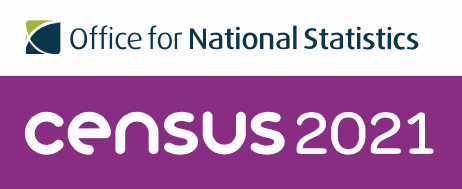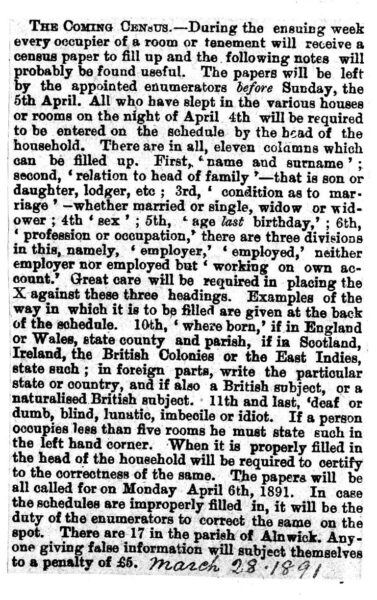News
The Census is coming

The 2021 Census will add to a process that has taken place in the United Kingdom for over 100 years. This has proven an invaluable tool for family historians, especially now that data on individuals up till 1939 (see below) is easily accessible online through popular family history websites. Data from the 1921 census is also due to be released in early 2022. The census was not, of course instigated for the benefit of family historians when the first took place in 1801. The original objectives were probably similar to that of of the Romans, who conducted censuses when they ruled Britannia 2000 years ago. They wanted to know how many people were living in all their territories, and hence estimate the potential tax take.
As each national census has taken place 10 years apart, more and more useful information has been gathered in addition to the original raw headcount. When viewing census data through any of the family history websites, it should always be borne in mind exactly which census you are accessing, and hence the limitations on information recoverable. This is especially true for the 1841 census, as ages were rounded with poor control, and hence unreliable. Additions to the information collected were made in the following years, with 1841 being the first useful census in family history terms:
- 1841 The name of the street, with each house reported in the order that the census return was collected, but no house number in those days. The names and ages of everyone in each household, including live-in servants. For all individuals over 15, their age was supposed to be rounded down to the nearest 5 years, though this instruction was not obeyed in all cases. Also everyone’s occupation and whether they were born in same county as that of the record. If born in Scotland, Ireland or “Foreign Parts” they would be marked with a tick.
- 1851 The relationship of each person to the head of the household. Their marital status, place of birth. Whether blind, deaf or dumb. The rounding down of ages was dropped and actual ages recorded instead.
- 1871 The economic status of each individual, and whether an imbecile, idiot or lunatic.
- 1891 Whether each individual was an employer, an employee, or neither. The number of rooms occupied by the household, if fewer than 5. This is highlighted by this useful article in the Alnwick Mercury of March 1891 :

- 1901 The total number of rooms in the dwelling. Whether each person was working at home or not.
- 1911 The industry or service with which any worker is connected. How long any couple has been been married. How many children were born alive, how many who are still alive, and how many who have died. The “Nationality of any Person born in a Foreign Country”.
- 1921 The place of work of any employee. Whether a marriage has been dissolved by divorce.
Note that the 1931 census was destroyed in a fire in 1942, and there was no 1941 census. There was, however a “Registration” in 1939 in preparation for war, the last set of data currently available to family historians.
- 1951 Questions on the household amenities
- 1961 Qualifications attained, household tenure
- 1991 Ethnic group, long-term limiting illness, central heating, term-time address of students
- 2001 Size of any workforce, if supervisor status, plus the first question on religion on a main census form
Given this steady rise in the information gathered throughout the last 100 years, it is not surprising that additional questions have found their way onto the 2021 census:
- 2021 Whether respondents were in the armed forces. A voluntary question for those aged 16 and over on sexual orientation. In addition, for 16 and over a voluntary question whether respondents identify as their birth-assigned gender, different to the compulsory question regarding respondents’ sex.
Detailed information by individual, and hence useful to family historians from the 2021 census will not, however be publicly available until 2122 under current legislation- so will not benefit this generation of genealogists.
(Further information on the 2021 census can be found at census.gov.uk )
For lots more of interest on family history and local news such as the Alnwick epidemic of 1849 see our Family History section.


